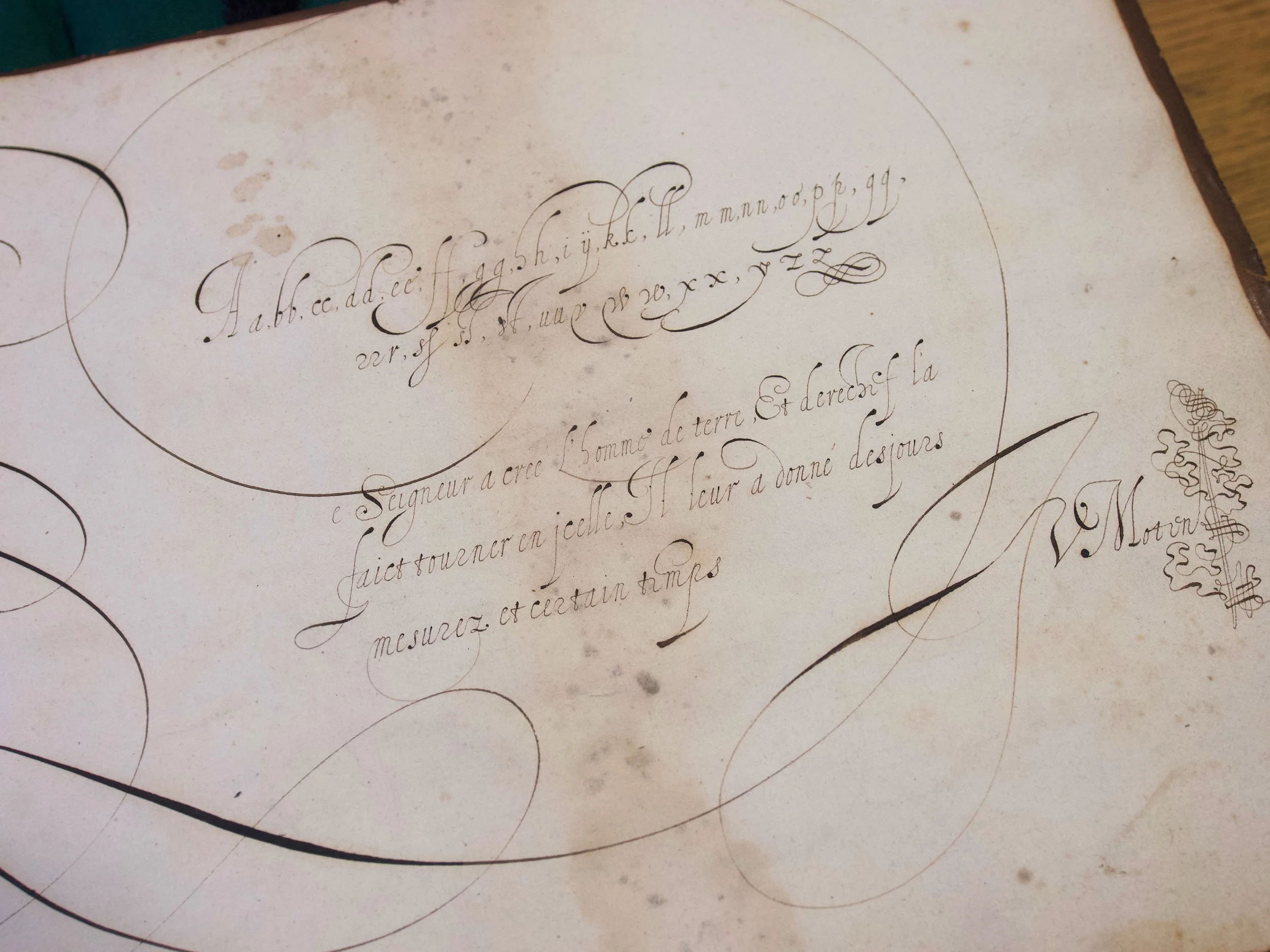Check out a handwritten Italian hand alphabet from the late 16th century that’s part of the Newberry Library’s wonderful collection of manuscripts. I’m breaking down how Italian hand calligraphy was written in the past and how that history can inform how we approach it today with pointed pen nibs.
Read MoreBooks with Hook
Musings and study notes on calligraphy script styles, manuscripts, books, and history.
The Newberry Library and the 17th century are full of wonderful calligraphy. Join me for an analysis of the work of an unknown French scribe who produced at least two manuscript copybooks in the early 1600s, complete with lovely examples of Italian chancery hand, aka cancellaresca corsiva, Humanist style minuscule, plus a number of decorative styles and micrography designs.
Read MoreFelix Van Sambix was a famous 16-17th c. Dutch scribe, calligrapher, and writing master. Several of his alphabet books have survived in excellent condition, including many handwritten examples of the scripts he taught. Join me for an analysis of his work, plus a comparison to some of the engraved work of his contemporary, Jan Van De Velde.
Read MoreMarie Pavie is a little-known French scribe and calligrapher from the early 17th-century, and she may have been the first woman to publish her own writing manual. Le premier essay de la plume de Marie Pavie is a lovely little book featuring the light-weight Italian style cancellaresca of the period, French civilité, plus some lovely gothic cursive script work. Unfortunately, there’s not currently a digitized copy of the text available online, so you’ll have to settle for my photos for now.
Read MoreMaterot’s copybook is one of my favorites for French-centric Italian hand inspiration. I spent a good chunk of my January study time revisiting his takes on early 17th-century chanceleresque, chanceleresque courante, and several Italian batardes. This book is an excellent resource, with comprehensive alphabet and letterform examples, plus numerous pages of contextual writing samples. The full page of ligatures is not to be missed!
Read More





